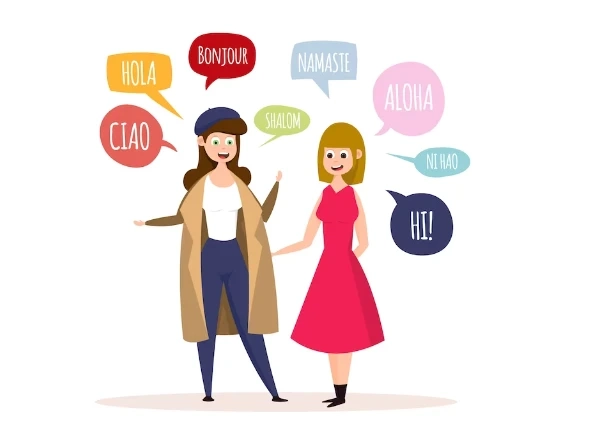The most important thing for foreign language learners to undertake is to expand their vocabulary. Not only does knowing a lot of words make you sound knowledgeable, but words and phrases are the foundation of all languages.
As you may have read in my "How to Form Sentences" post, we build sentences from words, and the more words you know, the easier it is to form sentences.
However, we require vocabulary not only for sentence formation, but also for reading. To fully understand a document, you must know at least 98% of the words in the text (including non-content words like the, but, and so on), and you can imagine how long it takes to grasp a text if you only know 70% or 50% of the words in the text.
Fortunately, based on language acquisition studies, I'll provide you some pointers on how to broaden and expand your English vocabulary.
Increase your exposure!
I can't emphasise this enough: EXPOSURE, EXPOSURE, EXPOSURE! Language learning requires exposure, and research has shown that the more exposure you have to English, the faster you will learn the language. The same is true for vocabulary: the more exposure you have, the more incidental learning occurs and the faster your vocabulary expands. However, you will discover later on that you need to do more to truly broaden your vocabulary.
Incidental vocabulary acquisition is when you acquire vocabulary simply by being exposed to it. This means that you encounter a word repeatedly (in a video, in a text, in a song) and at some point will understand what the word means. There’s one caveat with this: make sure you encounter the words in different contexts and more than once.
What's more intriguing is that the more you encounter the word in a text, the less time you'll need to process it. It soon "blends in" with other words you know, and you become acquainted with the word.
Do you want subtitles with that?
What are you going to do with your subtitles? Should you have them on in your first language or in English? Having English subtitles is the most effective way to get the proper blend of visual and audio input. Just make sure that if you're viewing something to help you enhance your vocabulary, it's not too challenging. Select something that is somewhat over your skill level.
The holy grail: a vocabulary notebook
A vocabulary notebook is a useful tool for expanding your vocabulary. This is basically a notepad in which you record new words and their definitions. There are diaries and notebooks designed specifically for keeping track of vocabulary, but a typical old-fashioned journal will suffice.
Because they involve more brain work than just searching up a word in a dictionary, vocabulary notebooks promote language acquisition. The Involvement Load Hypothesis asserts that "retention of unfamiliar words is dependent on the involvement load of a task, i.e. the amount of need, search, and evaluation it imposes."
When seeking up meanings for terms for your vocabulary organizer, you search for the word in a dictionary and evaluate whether the definition fits the context and your needs. This level of participation makes this technique incredibly beneficial for expanding your vocabulary.
Using a vocabulary notebook also boosts the quantity of words you may employ in your active vocabulary while practising productive skills, according to research.
By employing a vocabulary organizer, you will amass a personal dictionary of words, phrases, collocations, and phrasal verbs that you are unfamiliar with. Bonus tip: look for synonyms for phrases you use every day and add them to your personal lexicon!
Are you looking for spoken english classes in ahmedabad, Contact us BeAlpha
Use the words you’ve encountered
I feel that exercising your productive abilities is just as important as exposure for language learning, and there is data to back me up. This also applies to language acquisition: if you utilise the words you've encountered, you'll internalise them faster.
You could try using the terms in your work or when speaking to someone. You might also put post-its with your words all about your house to enhance your exposure to them.
Know all the words!
Hopefully, these suggestions may assist you in expanding your vocabulary. Do you require additional assistance? Use the Oxford 3000 or Oxford 5000 word lists to determine which words you should know at which CEFR level. Excellent resources for studying for the Cambridge exams.


